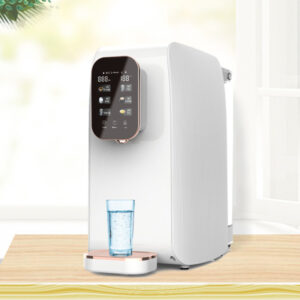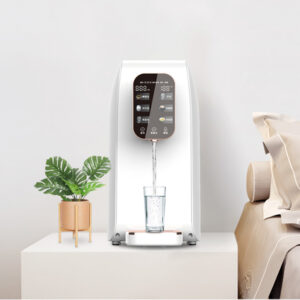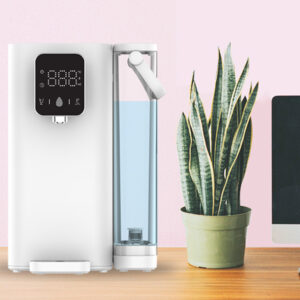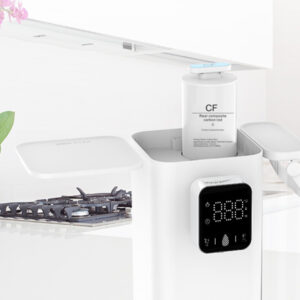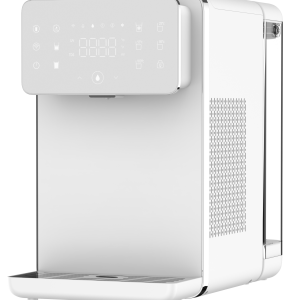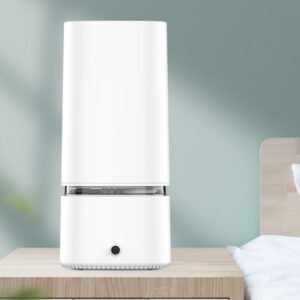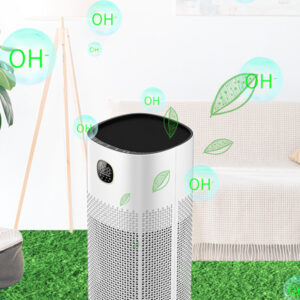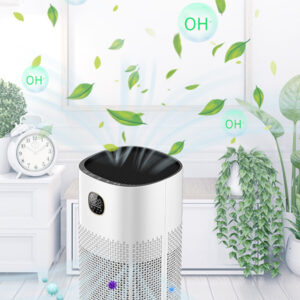The Environmental Benefits of Using a Reverse Osmosis Cold Water Dispenser
As we grapple with the realities of climate change and environmental degradation, every action we take, no matter how small, can have a significant impact on our planet’s health. One such action is the choice of our water dispensing system. This might seem like an insignificant detail in the grand scheme of things, but when you delve deeper into the subject, you’ll find that it’s quite the contrary.
In this blog post, we will explore the environmental benefits of using a reverse osmosis cold water dispenser. You will be impressed by how it can improve your environment.
Reducing Plastic Waste
Plastic waste is a significant environmental issue that has gained widespread attention in recent years. Single-use plastic bottles, in particular, contribute to the growing problem of plastic pollution. By using a cold water dispenser, individuals can significantly reduce their reliance on plastic bottles and help combat this issue.
Cold water dispensers provide a convenient and sustainable alternative to bottled water. Instead of purchasing single-use plastic bottles, users can simply refill their reusable water bottles or glasses with chilled and filtered water from the dispenser. This eliminates the need for plastic bottle production, transportation, and disposal, thereby reducing the overall environmental impact.
According to statistics, the average American consumes approximately 167 single-use plastic water bottles per year. By switching to a cold water dispenser, an individual can save hundreds of plastic bottles from ending up in landfills or polluting our oceans. This not only reduces plastic waste but also conserves valuable resources such as oil and water, which are used in the production of plastic bottles.
Energy Efficiency and Lower Carbon Footprint
Energy efficiency and carbon footprint reduction are crucial aspects of environmental sustainability. By using a cold water dispenser, individuals can contribute to these efforts by minimizing energy consumption and reducing their carbon footprint.
Cold water dispensers are designed to be energy-efficient. They utilize advanced cooling systems that consume less energy compared to traditional refrigeration methods. Additionally, some models are equipped with energy-saving features such as timers and sensors that automatically adjust the cooling settings based on usage patterns. This ensures that energy is not wasted when the dispenser is not in use.
By reducing energy consumption, cold water dispensers help to lower greenhouse gas emissions and mitigate climate change. According to statistics, the production of plastic bottles alone emits approximately 2.5 million tons of carbon dioxide each year. By using a cold water dispenser and eliminating the need for plastic bottles, individuals can make a significant impact in reducing their carbon footprint.
Eliminating Harmful Chemicals from Drinking Water
The presence of harmful chemicals in drinking water is a growing concern worldwide. These chemicals can have detrimental effects on human health and the environment. By using reverse osmosis technology, cold water dispensers can effectively eliminate these harmful substances and provide clean and safe drinking water.
Harmful chemicals in drinking water can come from various sources, including industrial pollution, agricultural runoff, and aging infrastructure. These chemicals can include heavy metals, pesticides, pharmaceutical residues, and chlorine. Consuming water contaminated with these substances can lead to various health issues, including gastrointestinal problems, hormonal imbalances, and even cancer.
Reverse osmosis technology is highly effective in removing these harmful chemicals from water. The semipermeable membrane used in the filtration process has microscopic pores that can block even the smallest particles. This ensures that the water produced by a cold water dispenser is free from contaminants and safe for consumption.
According to statistics, reverse osmosis technology can remove up to 99% of contaminants from water. This includes heavy metals such as lead and mercury, which are known to have severe health effects. By using a cold water dispenser with reverse osmosis technology, individuals can have peace of mind knowing that they are consuming clean and safe drinking water.
Promoting Healthier Drinking Habits
Drinking an adequate amount of water is essential for maintaining good health. However, many people struggle to meet their daily water intake requirements. Cold water dispensers can help promote healthier drinking habits by providing easy access to chilled and filtered water.
Cold water dispensers make it convenient for individuals to stay hydrated throughout the day. The chilled water is refreshing and encourages people to drink more water. This is especially beneficial for those who find it difficult to drink plain tap water due to its taste or temperature.
By promoting healthier drinking habits, cold water dispensers can have a positive impact on overall health and well-being. Drinking enough water can help improve digestion, boost metabolism, and enhance cognitive function. It can also aid in weight management, as water can help reduce appetite and increase feelings of fullness.
According to statistics, individuals who have access to a cold water dispenser are more likely to meet their daily water intake requirements compared to those who rely on other sources of water. This highlights the importance of providing easy access to clean and refreshing drinking water.
Cost Savings and Reduced Water Usage
In addition to the environmental benefits, using a cold water dispenser can also result in cost savings and reduced water usage. This is particularly advantageous for households and businesses looking to minimize their expenses and conserve resources.
Cold water dispensers offer a cost-effective alternative to purchasing bottled water. While the initial investment may be higher compared to traditional water filtration methods, the long-term savings can be significant. By eliminating the need for single-use plastic bottles, individuals can save money on purchasing bottled water regularly.
Furthermore, cold water dispensers are designed to be efficient in their water usage. Unlike traditional water coolers that continuously dispense water, cold water dispensers only release water when it is needed. This helps to minimize water wastage and conserve this precious resource.
Protecting Aquatic Ecosystems and Wildlife
Aquatic ecosystems and wildlife are vital components of our planet’s biodiversity. They provide essential services such as water purification, nutrient cycling, and habitat for numerous species. Cold water dispensers can help protect these ecosystems and wildlife by reducing pollution and conserving water resources.
By eliminating the need for plastic bottles, cold water dispensers help prevent plastic pollution in our oceans and waterways. Plastic waste poses a significant threat to marine life, as animals can become entangled in it or mistake it for food. By reducing plastic waste, cold water dispensers contribute to the preservation of aquatic ecosystems and the protection of marine wildlife.
Furthermore, by conserving water resources, cold water dispensers help maintain the ecological balance of freshwater ecosystems. Water scarcity is a growing concern in many regions, and unsustainable water usage practices can have severe consequences for aquatic habitats and the species that depend on them. By using reverse osmosis technology and minimizing water wastage, cold water dispensers support the conservation of water resources and the protection of freshwater ecosystems.
Conclusion on The Environmental Benefits of Using a Reverse Osmosis Cold Water Dispenser
Finally, using a reverse osmosis cold water dispenser offers numerous environmental benefits. It helps reduce plastic waste, promote energy efficiency, eliminate harmful chemicals from drinking water, promote healthier drinking habits, save costs, support sustainable agriculture and farming, and protect aquatic ecosystems and wildlife.



